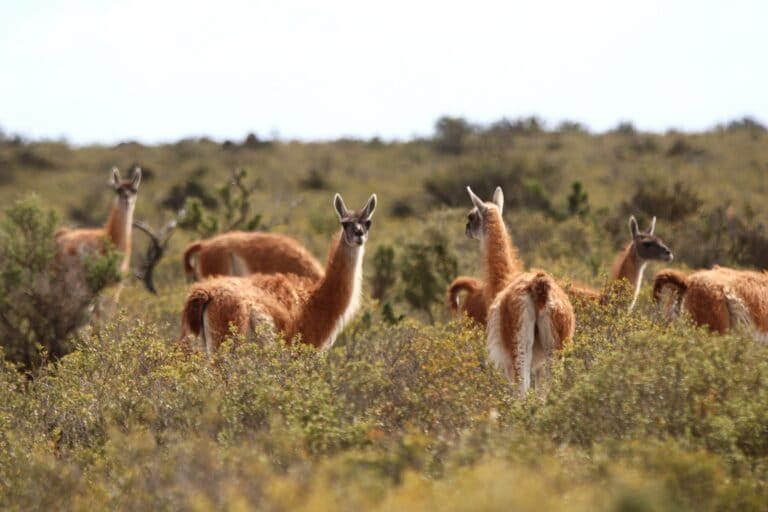- Indonesian authorities have arrested two of four suspects alleged to have killed a rare Sumatran elephant and hacked off one of its tusks.
- The arrest took place about a month after the elephant was found dead in the Leuser Ecosystem in Sumatra’s Aceh province. News of the killing garnered widespread attention and calls to solve the case.
- There are only an estimated 2,400 Sumatran elephants left in the wild, scattered across 25 fragmented habitats on the island.
Authorities in Indonesia have arrested two of four suspects alleged to have killed a rare Sumatran elephant and hacked off one of its tusks last month.
Police in East Aceh district, at the northern end of the island of Sumatra, announced on July 3 that they had arrested two men and were on the hunt for two others, all of whom remain unnamed. They also displayed evidence seized from the suspects, including a machete and two elephant tusks, one of which is believed to have been taken from Bunta, the animal found dead on June 9 inside the Leuser Ecosystem in Aceh province.
Bunta, a 27-year-old male Sumatran elephant (Elphas maximus sumatranus), had since 2016 been regularly trained and employed by forest rangers in Aceh as part of a unit to ward off wild elephant herds encroaching on farms and villages. Conservation officials suspect he was poisoned.

Adi Karya, the head of the National Police’s special crimes unit, said in a statement that authorities were committed to rooting out the trafficking network behind the killing of the elephant. “[We] hope that this arrest can be a lesson for others not to commit this [kind of] crime against wildlife,” he added.
Under Indonesian conservation law, the killing, trading or distribution of protected species and their parts can incur jail sentences of up to five years and fines of up to 100 million rupiah ($7,000).
But law enforcement against wildlife killings remains weak, with offenders rarely prosecuted. On the few occasions that cases do make their way to court, the perpetrators typically receive token sentences or fines far less than the maximum.
The news of Bunta’s killing garnered nationwide attention, with the governor of Aceh himself offering a reward for information leading to the arrest of the perpetrators. (The governor, Irwandi Yusuf, was this week arrested by anti-corruption investigators in an unrelated bribery case.) An online petition calling on the Indonesian authorities to solve the killing received nearly 85,000 signatures.
The death of Bunta is the second elephant killing in Sumatra by suspected poachers this year. In January, farmers discovered the body of a male elephant in a protected forest in southern Sumatra with both of its tusks hacked off. It was also believed to have been poisoned. To date, there have been no suspects named or arrests made in that case.
In December last year, a pregnant elephant was found dead in an oil palm plantation in Aceh. In that case, authorities said an autopsy showed general signs of poisoning, including the digestive organs having turned black. The elephant was an estimated 25 years old and believed to have been at least six months short of giving birth. It did not have tusks, as is typical for female Sumatran elephants.
High rates of deforestation throughout much of Sumatra, primarily for monoculture plantations such as oil palms, rubber and pulpwood, have driven native wildlife from their habitats and into more frequent conflicts with humans. Orangutans and elephants, in particular, are seen as pests by farmers for raiding crops and trampling plants. Locals have in many cases resorted to poisoning or shooting the animals.
In addition to these problems, the critically endangered species of the Leuser Ecosystem also face increased threats from greater human incursion into their habitat as a result of road projects. The region is of prime ecological importance as one of Indonesia’s last large tracts of intact rainforest. It is home to four of the most iconic and critically endangered species on Earth: the Sumatran elephant, tiger (Panthera tigris sondaica), rhino (Dicerorhinus sumatrensis) and orangutan (Pongo abelii).
Bunta was reportedly one of the elephants visited by Hollywood superstar and wildlife philanthropist Leonardo DiCaprio in March 2016. The actor’s foundation awarded $3.2 million to NGOs the Rainforest Action Network and Haka to protect the Leuser Ecosystem.
There are only an estimated 2,400 Sumatran elephants left in the wild, scattered across 25 fragmented habitats on the island.

FEEDBACK: Use this form to send a message to the author of this post. If you want to post a public comment, you can do that at the bottom of the page.














